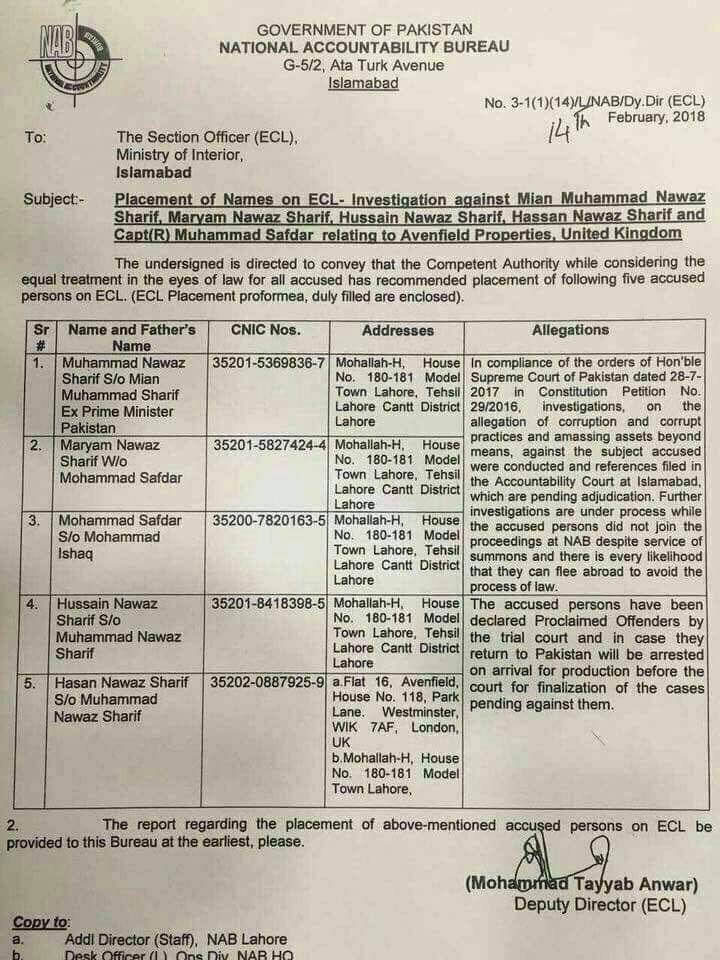Saudi Tough Times Translates Into Tough Time And Rude Shock For Long -Term Paki Settlers  For Pakistanis used to Saudi Arabia, home is not home any more
For Pakistanis used to Saudi Arabia, home is not home any more
Ayesha Siddiqa
June 10, 2018
For Pakistanis used to Saudi Arabia, home is not home any more
quote]The idea of a homeland has consolidated so much in the modern human imagination that people often do not realise how fluid and overrated the concept is.
Homeland is equated with origin, which over years has turned into an important category to identify people.But homelands may often not be homes. People can equate lands with home that can have nothing to do with their origins. They may even be forced to return ‘home’, as in a place of their origin, and yet yearn for the ‘home’ they have had to abandon, and in the process never settle down emotionally.[/quote] Many authors have observed that Pakistanis are not comfortable ANYWHERE except in the land of Pakiland !
I began to understand the nature of a dichotomous identity when I first met Nadira Naipaul, the wife of V. S. Naipaul, in Bahawalpur during the late 1980s. She was then Nadira Mustafa, and lived there with her two children and her landowner husband, the late Iqbal Mustafa, warming the hearts of the town with her presence.
When I asked her about the place of origin of her family, I didn’t get an answer that I was used to: “My family is from Kenya.” She was not African, but that was very much ingrained in her identity.
After becoming Nadira Naipaul, The Lady has done an 180* ! Her’s was one of the many families who were forced to leave their homes to either settle in the West or come to countries associated with their origin. These people were part of the hundreds and thousands of Indians who were taken by the British as professional or unskilled workers to African colonies where they lived and prospered, even setting up their own businesses until Africa started to gain its independence.
Idi Amin, for instance, gave these people, who had British travel documents, the choice to either renounce these documents or leave in 90 days. For those who opted to stay, things didn’t get better either as they were up against discrimination.
While many people migrated to Europe and the Americas, some came to countries carved out of the Subcontinent. Yet, there is very little written about them or visualised in art in Pakistan about their personal traumas of that migration. To be fair, not a lot has been written even about the trauma of forced migration of Pakistanis from Bangladesh after 1971. Thus, it is quite probable that public discourse will ignore the evolving tragedy of hundreds and thousands of families currently undergoing (almost) forced eviction from Saudi Arabia.
So, the so-called "special relations" of Pakistan with the Saudis does not mean "anything" to the arrogant Saudis 
These people have not been given any timeframe to leave but they know it is not longer easy to remain in the Kingdom where they spent decades and invested in a future.The decision by Riyadh to impose a tax of about 200 Saudi Riyals on every foreign individual, referred to in Arabic as ajnabi (stranger), has forced hundreds of Indians, Pakistanis and Bangladeshis to send their families home, if not return altogether. Now it is either men being torn from their families, or making a choice to live in Saudi Arabia legally struggling to survive in the face of the ‘Saudisation’ of the economy as per ‘Vision 2030’, rolled out by the new prince-king.
The Saudis are first looking after their own, and the Pakis are the "collateral damage" of the new policy ! Reportedly, General (retd) Raheel Sharif tried to give hope to some journalists he had invited from Pakistan at the end of last year to Riyadh. He had indicated that the military coalition would bring numerous benefits to Pakistan, such as the possibility of visa-free entry for member states of the Saudi-funded military coalition.
Actually, the opposite has happened . Saudis have tightened visa rules for the Paki Awaam and not for the Paki Elites ( like Imran Khan !) While this may be his understanding, the facts speak otherwise. Saudi Arabia is not keen to import or retain un-skilled labour from Pakistan or other parts of South Asia. In 2017, about 64,689 Pakistanis were evicted from the Kingdom. While many of these people were fairly new migrants who had overstayed their visas or were working illegally, the situation is not good even for those who have lived there longer.
Recently a video surfaced on social media showing Paki pilgrims "openly begging" on the streets of Makkah, to the chagrin of those Pakis who are "settled" there !!! 
Pakistanis or South Asian Muslims in general have a long association with Saudi Arabia. There were scholars and their families who had settled there during the 1930s and the 1940s. Even today, you find houses with the names al-Hindi and al-Sindhi written on the front. Later, as the Saudi state started to evolve with the discovery of crude oil, Pakistani experts played an important role in the evolutionary process.For instance, Pakistani economist Anwar Ali became the head of the Saudi Arabian Monetary Authority (SAMA) in 1957, an organisation that controls all the resources of the Kingdom and works as its central bank. He remained in the position until 1974. There were many other skilled workers often with an ideological affinity with the Jamaat-e-Islami who worked in various parts of the country.
That was then and this is now ! The Saudis have ( rightly ) decided that is high time that they "attempt to stand on their own two feet " . Now with "MBS gone upstairs"  , it is anybody's guess whether this newly policy is (i) going to be implemented (ii) it is going to succeed !
, it is anybody's guess whether this newly policy is (i) going to be implemented (ii) it is going to succeed ! A larger tranche of Pakistanis came during the 1970s and later. Zulfikar Ali Bhutto cultivated relations with the Arab Middle East, especially Saudi Arabia and Libya. Resultantly, there was space for workers from Pakistan who were happy to go to Saudi for good money and the blessing of being in the holy land.
In any case, Saudi society, dependent on oil revenue and not eager to do labour, was happy to enjoy the presence of this dedicated workforce. An old joke is that one of them was asked to define if love was pleasure or work. They responded that ‘it must be pleasure because if it were work we would have hired an Indian
( all Pakis are known as Indians in Saudia !) to do it.’ But it seems that KSA’s prince-king wants to change this by making his people work, and he is in a hurry to do so.
Is he still alive 
Vision 2030 aims to shift the emphasis from oil revenue to developing domestic production capacity which, in turn, means making Saudi’s work for their living. This shift has changed everything for the South Asians in the Kingdom.
IMO, it is a "pipedream" . It will not succeed . Work Ethic is a foreign word for them  !!!
!!!The unskilled labour is finding it hard to earn money the way they used to. Today, the gold souk in Jeddah has far fewer shops run by South Asians than before. While the prince-king Muhammad bin Salman – popularly known by the short form of MbS – hopes to modernise society. He has also fuelled the frustration of the average Saudi by bringing out the inherent racism against what may be considered as “weaker races”.
In October, for example, a Bengali worker was accidentally run over in Taif by a Saudi driver whose intention was to ridicule a South Asian pedestrian. Naeem Qazi, who had moved to Saudi Arabia during the 1980s, said that running his grocery store had become difficult because even the Arab neighbours had begun to draw a distinction by not shopping there any more.
There was a time not too long ago when Qazi ran a shop and a departmental store and had a couple of big American cars to drive. Now with fuel prices going up and newer taxes being added, he can only afford to drive one pickup truck and that too not every day. His main concern when he surrendered his iqama (resident’s permit) was to salvage whatever he could because, as the family discussed between themselves, “Let’s sell when there is still someone to buy our things.”
Tough times for the locals spell tough times for the "poor Pakis"s !!!Most Pakistanis leaving Saudi Arabia believe that, in the coming days, the situation would get even tougher for expatriates left behind. “The Arabs do not offer a good price for our things because they know it will come to them for free.” Yet Saudi Arabia feels more of a home than their homeland Pakistan. Naeem Qazi’s daughter Asma constantly complains to her cousins about Pakistan and how things are not so good. The food is expensive and impure and there is lots of corruption. The Saudi riyals they had earned somehow no longer buys them value for money. It was nicer then when they didn’t care about converting. Asma’s mother complained that: “Here, even the water is not pure – we used to have a good one-time meal in five riyals but this is so much more expensive!” She is not moved even when relatives remind her that her house in Jeddah was smaller than what they have in Pakistan.
Asma, who was born in Pakistan unlike her two other siblings, had moved to DG Khan in 2015 much before her family. Yet she embraces Saudi culture, wears the abaya, tells off her family if they visit Sufi shrines, and even opposes any celebration for her deceased father-in-law, decrying it as bidaa. She is amazed to see her cousins engaging in bidaa despite being educated. She had stopped a cousin, who had once come to Saudi Arabia for umrah, from touching the shroud of the Holy Ka’aba. She also believes that Pakistan has no morality as women roam around uncovered. When asked what she thought about the change in policy in Saudi Arabia, her response was that it was wrong as many people among her lot and especially in the Kingdom felt that a woman’s respect is in following her man or male members of the family.
She should stay patient in Pakiland. Slowly and surely , it will become another Saudi ( without oi. And without water as well !) Asma and her sisters feel flustered at not finding it easy to just walk into a mosque in DG Khan. The younger lot, which moved back to Pakistan in mid-2017, remains nervous about the country of their origin. The brothers and sisters are far more comfortable speaking in Arabic.
Arabic is now become compulsory in Paki schools ! The family had never imagined returning to Pakistan. Nasreen’s family had lived in KSA since the early 1950s when her father-in-law migrated. Nasreen’s husband, born in Saudi Arabia, had not sought citizenship. He felt secure as he was a mutawi (member of the religious police), who had received his religious education in the Kingdom. He was even given a residence in Medina where he ran his general store. Forced to come to Pakistan, which is as foreign as any land, Nasreen’s husband struggles with language as Arabic is all he can speak.
"Religious police" will be recruited in Pakistan, once the country becomes fully Islamic in a couple of years . !!!Many of these Saudi-Pakistani families believe that their stay in Pakistan is temporary and they will be able to return as soon as MbS realises his mistake ( MBS has not been seen since the last 2 months !) of trying to run the system through an inefficient local population. Even some of their Arab friends, who are probably frustrated with the rapid changes, believe that the new system cannot last and tell these people to hold on until they can return. This may be wishful thinking.However, an unfulfilled desire might also mean that these people could try to create their own Saudi Arabia in Pakistan for which there is a lot of potential. For these migrants, the Najdi culture is all they can relate to.








